Claudia Ferreira, Sorbonne University, France
Bioterrorism is defined as “the intentional release or threat of release of biologic agents—viruses, bacteria, fungi, or their toxins—to cause disease or death in humans, animals, or crops.” Bioterrorism remains a significant and evolving threat to public [....] » Read More

















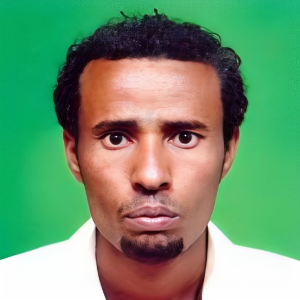




































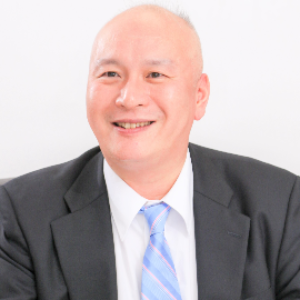







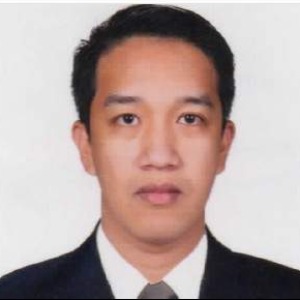







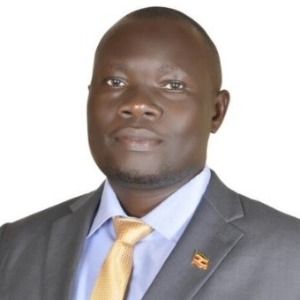









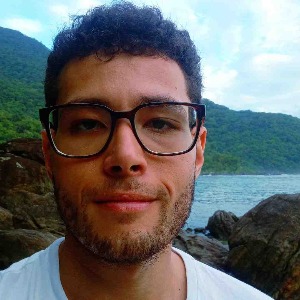
















Title : Changing population immunity to COVID-19 in the context of infection, vaccination, and emerging SARS-CoV-2 variants
Ranjan Ramasamy, ID-FISH Technology, United States
The changing state of protective immunity to COVID-19 in the global population during the six and a half years since COVID-19’s origin in 2019 is analysed in the context of the (i) circulation of SARS-CoV-2 in the population, (ii) widespread use of different types of C [....] » Read More
Title : Extensively drug-resistant bacterial infections: Confronting a global crisis with urgent solutions in prevention, surveillance, and treatment
Yazdan Mirzanejad, University of British Columbia, Canada
Extensively drug-resistant (XDR) bacterial infections represent a growing global crisis with profound impacts on morbidity, mortality, and health system sustainability. These pathogens, resistant to nearly all available antibiotics, are rapidly outpacing our therapeutic options a [....] » Read More
Title : Single step immunoblot tests with recombinant protein antigens for detecting IgG and IgM antibodies in Lyme disease
Ranjan Ramasamy, ID-FISH Technology, United States
Detection of specific antibodies is important for diagnosing Lyme disease (LD). Until recently, this required two separate tests termed the standard two-tier tests (STTTs). The development of one-step immunoblot (IB) tests for detecting IgG and IgM antibodies in patient sera, ter [....] » Read More
Title : Mathematical modeling of COVID-19 dynamics in a West African context
Christabel Emaeyak James, University of Glasgow, United Kingdom
The novel Coronavirus Disease 2019 (covid-19), which emerged in Wuhan, China is a highly infectious disease caused by (SARS-CoV-2) and has significantly affected public health and socio-economic well-being worldwide. Its transmission highlights the potentially important role of t [....] » Read More
Title : TLR9-dependent modulation of adipocyte differentiation by Brucella abortus DNA induces an inflammatory response
Nicole Freiberger, INBIRS-CONICET, Argentina
Brucellosis, caused by Brucella abortus (Ba), remains a neglected zoonosis with significant human morbidity, often associated with chronic inflammatory manifestations. While traditionally regarded as passive reservoirs of energy, adipocytes are now recognized as immunometabolic [....] » Read More
Title : Pneumocystis pneumonia in immunocompetent children
Elmira Rastyamovna Samitova, Sechenov First Moscow State Medical University, Russian Federation
Pneumocystosis, caused by Pneumocystis jirovecii, is an opportunistic infection that is well-studied and occurs in immunocompromised patients, particularly those with HIV infection, as well as in patients with systemic rheumatic diseases and organ transplants who are receiving im [....] » Read More
Title : Regulation of dikaryotic arbuscular mycorrhizal fungal infection in Vigna angularis, Vigna radiata, and Allium tuberosum by Glomus mosseae
Chihang Chang, Kang Chiao International School Linkou Campus, Taiwan
The aim of this study is to investigate whether mycorrhizal fungi infect plant species such as Vigna angularis, Vigna radiata, and Allium tuberosum to promote growth, or whether they instead contribute to disease. Existing literature highlights the complexity of these interaction [....] » Read More
Title : Regulation of dikaryotic arbuscular mycorrhizal fungal infection in Vigna angularis, Vigna radiata, & Allium tuberosum by Glomus mosseae
Lin Yucheng, Kang Chiao International School Linkou Campus, Taiwan
The aim of this study is to investigate whether mycorrhizal fungi infect plant species such as Vigna angularis, Vigna radiata, and Allium tuberosum to promote growth, or whether they instead contribute to disease. Existing literature highlights the complexity of these interaction [....] » Read More
Title : Genomic diversity of Orthohantavirus Andesense (ANDV): Impact of non-synonymous SNVs on gene expression and immune system evasion
Hade Ramos, Pontificia Universidad Catolica de Chile, Chile
Introduction: The Andes virus (ANDV), a rodent-borne Orthohantavirus, causes hantavirus cardiopulmonary syndrome (HCPS) in Chile and Argentina. Its genome comprises three RNA segments: large (L), medium (M), and small (S). The S segment encodes the nucleocapsid (N) and the non-st [....] » Read More
Title : Efficacy and safety of biologic therapies for inflammatory bowel disease: a systematic review from a nursing perspective
Hatice Ceylan, Burdur Mehmet Akif Ersoy University, Turkey
Background: Inflammatory Bowel Disease, comprising Crohn's disease and ulcerative colitis, presents as a chronic, relapsing-remitting inflammatory condition of the gastrointestinal tract, necessitating a multidisciplinary approach to optimize patient outcomes (Schiavoni et al [....] » Read More
Title : E2 ubiquitin-conjugating enzymes regulates dengue virus-2 replication in Aedes albopictus
Xueli Zheng, Southern Medical University, China
Aedes albopictus (Ae. albopictus), an important vector of dengue virus (DENV), is distributed worldwide. Identifying host proteins involved in flavivirus replication in Ae. albopictus and determining their natural antiviral mechanisms are critical to control virus transmission. R [....] » Read More
Title : Emerging burden of non-tuberculous mycobacteria in MGIT-based tuberculosis cultures: Insights from South India
Ambati Mrudula Srinivasulu, Yoda Diagnostics, India
Background: Non-tuberculous mycobacteria (NTM) are increasingly recognized as clinically significant pathogens that can mimic Mycobacterium tuberculosis (MTB) in both clinical presentation and laboratory features. Because of intrinsic drug resistance and overlapping morpholo [....] » Read More
Title : Simultaneous inhibition of terminal oxidases eradicates heterogenous population of Mycobacterium tuberculosis
Arnab Roy, NIPER Hyderabad, India
Background: The persistence of mycobacterium tuberculosis (Mtb) during chemotherapy is a major obstacle to shortening tuberculosis (TB) treatment. A key survival mechanism is the bacterium's metabolic redundancy, specifically the presence of two terminal oxidases for respirat [....] » Read More
Title : Detection and variant characterization of Lumpy Skin Disease Virus (LSDV) from dairy cattle in India
Manali Bajpai, CSIR-National Chemical Laboratory, India
The spread of a severe and often fatal form of Lumpy Skin Disease (LSD) of cattle and water buffaloes has caused widespread mortality and morbidity of these animals in India. To track and understand the genetic changes occurring in the virus and to enable routine surveillance o [....] » Read More
Title : CRISPR-based point-of-care diagnostics for real-time surveillance of FMDV and LSDV under the One Health framework
Barsha Mohanty, CrisprBits Private Limited, India
Transboundary animal diseases like Foot-and-Mouth Disease Virus (FMDV) and Lumpy Skin Disease Virus (LSDV) mostly in Cattles are significant threats to livestock health, food security, and rural livelihoods in India. Their rapid spread across species and environments highlights t [....] » Read More
Title : Creutzfeldt-Jakob disease in the Philippines: Diagnostic challenges, clinical features and insights from the first multicenter registry and descriptive analysis
Samuel Ayo, Chong Hua Hospital Fuente Cebu, Philippines
Background: Creutzfeldt-Jakob disease (CJD) is an exceedingly rare, fatal, and rapidly progressive neurodegenerative disorder caused by misfolded prion proteins. In the Philippines, CJD is underrecognized and underreported due to limited access to diagnostic modalities and the ab [....] » Read More
Title : Neuroschistosomiasis in an adolescent presenting with seizure and headache: A case report
Ray John M Salud, Rizal Medical Center, Philippines
Background:Schistosomiasis, a neglected tropical disease, remains endemic in certain regions of the Philippines. This case highlights the importance of considering neuroschistosomiasis in the differential diagnosis of pediatric patients presenting with unexplained neurological sy [....] » Read More
Title : Trends in enteroviral meningitis at a tertiary care setting in Islamabad, Pakistan
Sania Raza, Shifa international hospital Islamabad, Pakistan
Introduction: Enterovirus is the most common cause of viral meningitis. It is more frequent in children and young adults. Traditional cerebrospinal fluid (CSF) tests like CSF culture and Latex Particle Agglutination (LPA) cannot detect viral causes and can lead to diagnostic [....] » Read More
Title : Immunotherapy with StroVac in the management of post-radiation cystitis and recurrent urinary infections among cervical cancer survivors
Nargiz Zeynal, NOC, Azerbaijan
Post-radiation cystitis is a common and challenging late complication among women treated for cervical cancer, frequently associated with recurrent urinary tract infections (UTIs) and reduced quality of life. Conventional antibiotic therapy often fails to provide long-term contro [....] » Read More
Title : Acceptability of mass drug administration for lymphatic filariasis in Baglung municipality of Nepal: A mixed-method study
Muskan Pudasainee, Pokhara University, Nepal
Introduction: Lymphatic filariasis (LF), a neglected tropical disease, remains a significant public health challenge in endemic regions including Baglung Municipality of Nepal. This study investigates the acceptability of mass drug administration (MDA) for LF in Baglung Municipal [....] » Read More
Title : Clustered deaths attributed to severe malaria and poor health-seeking behaviors in mid-western Uganda, June–September 2025
Mutegeki Michael, Ministry of Health, Uganda
Background: In August 2025, clusters of deaths were reported in Mubende, Kakumiro, and Kyankwanzi districts, mid-western Uganda. Cases presented with fever, severe headache, and body weakness followed by rapid progression to death. We investigated to determine the cause, magnitud [....] » Read More
Title : Assessment for IPC compliance among health facilities in Uganda: Analysis of data from the 2023 IPC survey
Mutegeki Michael, Ministry of Health, Uganda
Background: Infection Prevention and Control (IPC) is vital for safe, high-quality care and the protection of patients and health workers. Uganda’s IPC capacity was rated Level 2 (limited) in the 2023 Joint External Evaluation, indicating partial implementation with major g [....] » Read More
Title : Genomic analysis reveals the emergence of molecular insecticide resistance in the malaria vector, Anopheles gambiae, from Western Ethiopia
Fekadu Gemechu Gudeta, Ethiopian Public Health Institute, Ethiopia
Insecticide resistance poses a significant challenge to malaria control, driven by diverse molecular mechanisms whose distribution remains poorly characterized in Ethiopia. This study presents the first study using whole-genome sequence data of Anopheles gambiae from Ethiopia, co [....] » Read More
Title : Molecular dynamics simulations reveal a novel role for procalcitonin during bacterial induced sepsis
David Young, University of Northampton, United Kingdom
Procalcitonin (PCT) is widely recognized as a key biomarker of sepsis, yet its potential role as an active modulator in a dysregulated immune response remains poorly understood. In this study, we employed all-atom molecular dynamics (MD) simulations via GROMACS to investigate a p [....] » Read More
Title : Possibilities and challenges in developing a vaccine against leishmaniasis
Rakesh Kumar Singh, Banaras Hindu University, India
A vaccine against kala-azar (visceral leishmaniasis), which is caused by the various species of a parasite that belongs to the genus Leishmania, is still an unrealized goal. The major reason behind this is the poor immunogenicity of Leishmania antigens, which do not qualify the p [....] » Read More
Title : An observational prospective study of Guillain Barre syndrome (GBS) associated with enteric infection at North India, SMS Medical College, Jaipur
Shashi Bhushan Sharma, SMS Medical College and Hospital, India
Background: Guillain-Barré Syndrome (GBS) is an acute, immune-mediated neuropathy frequently triggered by gastrointestinal or respiratory infections or vaccine induced. Among these, Campylobacter jejuni is the most widely recognized antecedent pathogen. This study aimed to [....] » Read More
Title : Addressing gaps in access and quality of NCD services in rural Kenya through a participatory approach
Japheth Ogol Ouma, University of Antwerp, Kenya
Background: Projections show non-communicable diseases (NCDs) such as heart disease, cancer, diabetes, and chronic respiratory diseases in Africa will cause more deaths by 2030 than communicable and perinatal diseases combined. However, most countries, including Kenya, are not on [....] » Read More
Title : A cog in the weil
Anam Azhar, Texas Health Resources, United States
We present the case of a 46-year-old male with well-controlled HIV infection on antiretroviral therapy who presented with a four-day history of fever, malaise, and jaundice. The patient, a pilot with recent travel to the United Kingdom and prior travel throughout North America, C [....] » Read More
Title : Sporotrichosis: Case report and review of sporotrichosis — clinical presentation, diagnosis, antifungal susceptibility, and United States epidemiology
Taylor Hermann, University of South Florida, United States
Sporotrichosis is a subacute to chronic fungal infection caused by Sporothrix species, typically presenting with cutaneous or lymphocutaneous disease. Although traditionally associated with Latin America, zoonotic and environmental transmission has become increasingly recognize [....] » Read More
Title : Co-infection of Pneumocystis jirovecii and Mycobacterium tuberculosis in a patient with granulomatosis with polyangiitis: A diagnostic and therapeutic challenge
Maria Soura, National and Kapodistrian University of Athens, Greece
Background: Pneumocystis jirovecii pneumonia (PJP) is a rare but serious opportunistic infection affecting immunocompromised individuals. Although Pneumocystis organisms may colonize healthy lungs, they can cause severe pneumonia in patients with impaired immunity, particula [....] » Read More
Title : Rapid identification of Bacillus anthracis biomarkers via mass spectrometry: A review and its implications for biodefense
Jacqueline Roberta Soares Salgado, Engineering Military Institute (IME) of the Brazilian Army, Brazil
The rapid and unequivocal identification of pathogenic biological agents is a pivotal cornerstone in biodefense and chemical defense, particularly in light of the persistent threat of bioterrorism. Bioterrorism poses a significant global hazard, with Bacillus anthracis, the Abstr [....] » Read More
Title : Epidemiological profile of gestational toxoplasmosis in Brazil from 2019 to 2024
Luiz Filippe Simao Soares, Federal University of Espírito Santo (UFES), Brazil
Background: Gestational toxoplasmosis, caused by the protozoan Toxoplasma gondii, is an infection that generates significant concern due to the risks associated with vertical transmission from mother to fetus, which occurs due to the parasite's ability to cross the placental [....] » Read More
Title : Virulence factors and genetic diversity of Trypanosoma cruzi: Implications for pathogenesis mechanisms
Lucas Granja Cotrik, University Veiga de Almeida, Brazil
Introduction: The genetic diversity of Trypanosoma cruzi, classified into different DTUs, has a major influence on the pathogenic mechanisms of Chagas disease. This variability accounts for differences in the expression of virulence factors such as trans-sialidases and mucins, af [....] » Read More
Title : Atypical neurological and ophthalmic debut of AIDS with dual opportunistic infection: Cryptococcal meningitis and cytomegalovirus retinitis
Yaira Eloisa Mendoza Montijo, Autonomous University of Baja California, Mexico
Background: Opportunistic infections of the central nervous system (CNS) and retina are severe complications of advanced HIV/AIDS. However, their simultaneous presentation as the initial manifestation of AIDS is uncommon. The diagnostic challenge increases when the early cli [....] » Read More
Title : Diverse clinical presentations of brucellosis in a tertiary care centre
Ujwal Ramrao Shinde, Bharati Vidyapeeth Deemed University, India
Brucellosis, an endemic zoonosis in many countries, is caused by bacteria of the genus Brucella, a Gram-negative coccobacillus. The World Health Organisation receives reports of almost half a million cases each year. The most prevalent species, Brucella melitensis, is found mo [....] » Read More
Title : Risk factors of the early onset of catheter-related bloodstream infection among hemodialysis patients admitted at a tertiary hospital: A 5-year retrospective analysis (2018–2022)
Devin Edjohn Michael Aballe, Vicente Sotto Memorial Medical Center Department of Internal Medicine, Philippines
Introduction: Catheter-related bloodstream infection (CRBSI) remains a major cause of morbidity and mortality among hemodialysis (HD) patients worldwide. In low- and middle-income settings, limited vascular-access options and prolonged catheter use heighten infection risk. Local [....] » Read More
Title : Catastrophic unmasking: Fatal tuberculosis-associated IRIS presenting as acute liver failure in pregnancy
Carmela Bianca Villacete, St Luke's Medical Center - Quezon City, Philippines
Background: Immune Reconstitution Inflammatory Syndrome (IRIS) is a severe and potentially fatal inflammatory condition that can occur in severely immunocompromised patients, such as those with HIV, after initiating antiretroviral therapy (ART). The syndrome is triggered by [....] » Read More
Title : Prevalence and microbiologic profile of catheter-related bloodstream infections in chronic kidney disease patients in Baguio General Hospital and Medical Center
Cinderella Gerna, Dennis Molintas District Hospital, Philippines
Introduction: Central venous catheters (CVCs) are utilized as access for hemodialysis (HD) in emergency settings in Baguio General Hospital and Medical Center (BGHMC). CVCs remain the primary vascular access of chronic kidney disease (CKD) patients undergoing hemodialysis until [....] » Read More
Title : A case of neurosyphilis presenting as dyschromatopsia in an immunocompetent Filipino adult
Sharrah Mae Tan, Chong Hua Hospital Fuente Cebu, Philippines
Background: Syphilis, caused by Treponema pallidum, is a multisystemic sexually transmitted infection recognized as a “great imitator.” Ocular syphilis, a manifestation of neurosyphilis, can occur at any stage and affect nearly all ocular structures presenting wi [....] » Read More
Title : Report on several clinical cases of measles at the pediatrics department, Tam Anh General Hospital, Hanoi
Thi Hong Hai Phan, Tam Anh General Hospital, Vietnam
Background: Measles is an acute, highly contagious viral disease transmitted via the respiratory route, predominantly affecting unvaccinated children. While the clinical course is often self-limiting and characterized by high fever, upper respiratory tract inflammation, conjuncti [....] » Read More
Title : Epidemiological and clinical characteristics of children with measles treated at Tam Anh General Hospital, Hanoi, Vietnam (January–August 2025)
Thi Hong Hai Phan, Tam Anh General Hospital, Vietnam
Background: Measles remains a significant public health threat, particularly in developing countries. Following the COVID-19 pandemic, resurgence of measles cases has been reported worldwide. Objective: To describe the epidemiological and clinical features of pediatric measles [....] » Read More
Title : Duration of antibiotic therapy in intensive care
Sawssen Tihamy, University Hospital Center Ibn Rochd ICU 33, Morocco
Introduction: Antibiotics are the most widely prescribed drugs. Despite their many benefits, inappropriate use is not without risks. It is associated with the emergence of multidrug-resistant organisms, harmful effects on patients, and increased healthcare costs. As part of th [....] » Read More
Title : De novo molecular design and bioactivity prediction of novel hexahydroquinolines as transmission-blocking PfCDPK4 inhibitors
Gbolahan Oduselu, West African Centre for Cell Biology of Infectious Pathogens (WACCBIP), Ghana
Plasmodium falciparum Calcium-Dependent Protein Kinase 4 (PfCDPK4) is a crucial enzyme involved in gametogenesis. With the growing resistance to current antimalarial drugs, there is an urgent need to develop novel therapeutics with alternative mechanisms of action. This study aim [....] » Read More
Title : The impact of antibiotic growth promoters on broiler chicken and environmental health in Kibaha Town Council – Tanzania
Damas Theobald Msaki, Kibaha Education Centre, Tanzania, United Republic of
Introduction: A cross-sectional survey was conducted at Kibaha Town (Tanzania) to assess awareness and effects of using antibiotic growth promoters (AGPs) on both broiler chicken and environmental health. Objectives: This study aimed at investigating the effects of using antib [....] » Read More
Title : Seroprevalence of brucellosis in dairy animals and their owners in selected sites, Central Highlands of Ethiopia
Temesgen Kassa Getahun, Ethiopian Institute of Agricultural Research, Ethiopia
A cross-sectional study was conducted from December, 2019 to May, 2020 with the aim to determine seroprevalence and identify the potential risk factors of brucellosis in dairy cows with recent case abortion and their owners and farm workers, and to assess knowledge, attitude an [....] » Read More
Title : Real-world COVID-19 vaccine effectiveness in Ethiopia using a retrospective test-negative case-control study design
Gutema Bulti Tura, Ethiopian Public Health Institute, Ethiopia
Background: The Coronavirus Disease 2019 (COVID-19) pandemic has been a global health emergency caused by Severe Acute Respiratory Syndrome Coronavirus 2 (SARS-CoV-2). COVID-19 vaccinations are among the significant prevention and control mechanisms. Ethiopia launched vaccinati [....] » Read More
Title : Clinical and microbiological pattern of invasive pneumococcal disease in adult patients admitted to Sultan Qaboos University Hospital
Fatma Al Mahruqi , OMSB, Oman
Background: Invasive pneumococcal disease (IPD) remains a significant global cause of morbidity and mortality, particularly in children younger than 2 years and adults older than 65 years of age. The introduction of pneumococcal conjugate vaccines (PCVs) has led to a substantial [....] » Read More
Title : The combination (amphotericin B + EDTA) as an antifungal blocking agent in the inhibition of mixed biofilm formation on catheters
Ziane, University of Tlemcen, Algeria
Introduction: Vascular and urinary catheterization are routine procedures in hospitals, exposing patients to the risk of infection, the pathophysiology of which is closely linked to the presence of microorganisms on these implants. The ability to form biofilms is considered an im [....] » Read More
Title : Subtractive proteomics and immunoinformatics based design of a chimeric antigen for Leishmania aethiopica to diagnose cutaneous leishmaniasis
Deborah Telahun Teka, Bio and Emerging Technology Insitute, Ethiopia
Leishmania aethiopica is a protozoan parasite that is the main causative agent of cutaneous leishmaniasis (CL), a debilitating skin disease in Ethiopia. Currently, there are no L. aethiopica targeting immunodiagnostics on the market. This study identified candidate proteins of L. [....] » Read More